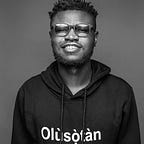#BrandTori4Town: Abeg don hold my pocket! And I am beginning to love it.
For many people in the ecosystem, Abeg started in what pidgin describes as “like play, like play”. It began with, “Wow, this is dope; let’s see how it goes”.
In the first few months, there were a lot of think pieces on Twitter: It is a “cash app for Africa”, “It is a social way of communicating good that scale”, and many more.
As an observer from the outside, I loved the brand’s energy. It was difficult to doubt its trajectory based on the people reported to be behind it, and they also gave us one of the most exciting websites in the ecosystem.
However, I felt the brand left too much of how it should be defined to the users/community, and there was no clear-cut brand essence that users could connect to beyond feeling among.
I felt they could do more with the momentum. And when Abeg sponsored BBNaija for the first time, people could not readily connect with their story in terms of a journey and the possibilities associated with its impact on the ecosystem, which raised more questions than answers. Maybe this was the intention, to raise dust and leave an impression when the dust settles — I wouldn’t know.
However, since rebranding to Pocket, they have not left their narrative to chance across the different channels. My only slight hurdle is that they remind me so much of my favourite app in the University, GetPocket.
Now, the game is straightforward: Bank, shop and sell. Although they maintained part of the earlier giveaway model, they have evolved to maximise the community they built with the initial drive on Abeg.
The thought around this new proposition is exciting. And I see it. The ecosystem of products and services they are building can spiral into something massive if they can strike the right relationships between stakeholders in the community.
I think this is what they are doing, and they are deploying every means possible to nudge people to see them as a social community with a capacity to do more — bank, shop and sell. If they are doing this well, connecting with the demography that used to know and talk about them with so much noise online is another conversation.
